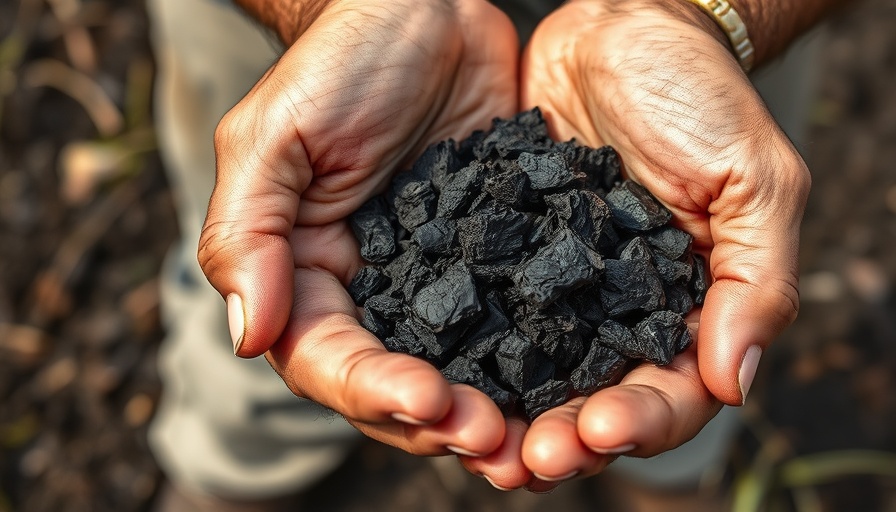
Unlocking the Secrets of Biochar for Your Garden
As more homeowners embrace eco-friendly gardening practices, biochar emerges as a revolutionary soil amendment that holds promise for enhancing plant health. But what exactly is biochar, and is it truly beneficial for your garden?
What Is Biochar?
Biochar is a form of charcoal produced through the pyrolysis process, where organic materials like wood, leaves, or agricultural byproducts are heated in low-oxygen environments. This results in a stable carbon structure that not only enriches the soil but can also help sequester carbon dioxide, making it an ally in combating climate change.
The Benefits of Adding Biochar to Your Soil
Research highlights multiple advantages of incorporating biochar into gardening:
- Enhanced Soil Fertility: Biochar improves nutrient retention, allowing the soil to hold essential minerals and nutrients for longer, which can lead to healthier plants.
- Water Management: Its porous structure aids in better water retention, which can reduce the need for frequent watering.
- Microbial Activity: Biochar creates a habitat for beneficial soil microbes, boosting their populations and promoting a healthy ecosystem that benefits plants.
Considerations for Use
While biochar offers many benefits, it is crucial to apply it correctly. Mixing it with compost before adding it to your garden can enhance its effectiveness, ensuring a nutrient-rich environment for your plants. Furthermore, local soil conditions may affect how well biochar performs, requiring adjustments based on specific needs.
Final Thoughts on Biochar
In conclusion, biochar stands as a powerful tool for gardeners aiming to create sustainable, health-promoting environments for their plants. By understanding its advantages and how to implement it effectively, homeowners can not only enhance their gardens but also contribute positively to the environment. Interested in exploring more about eco-friendly gardening practices? Stay tuned for updates and tips to transform your garden into a thriving ecosystem!
 Add Row
Add Row  Add
Add 




Write A Comment